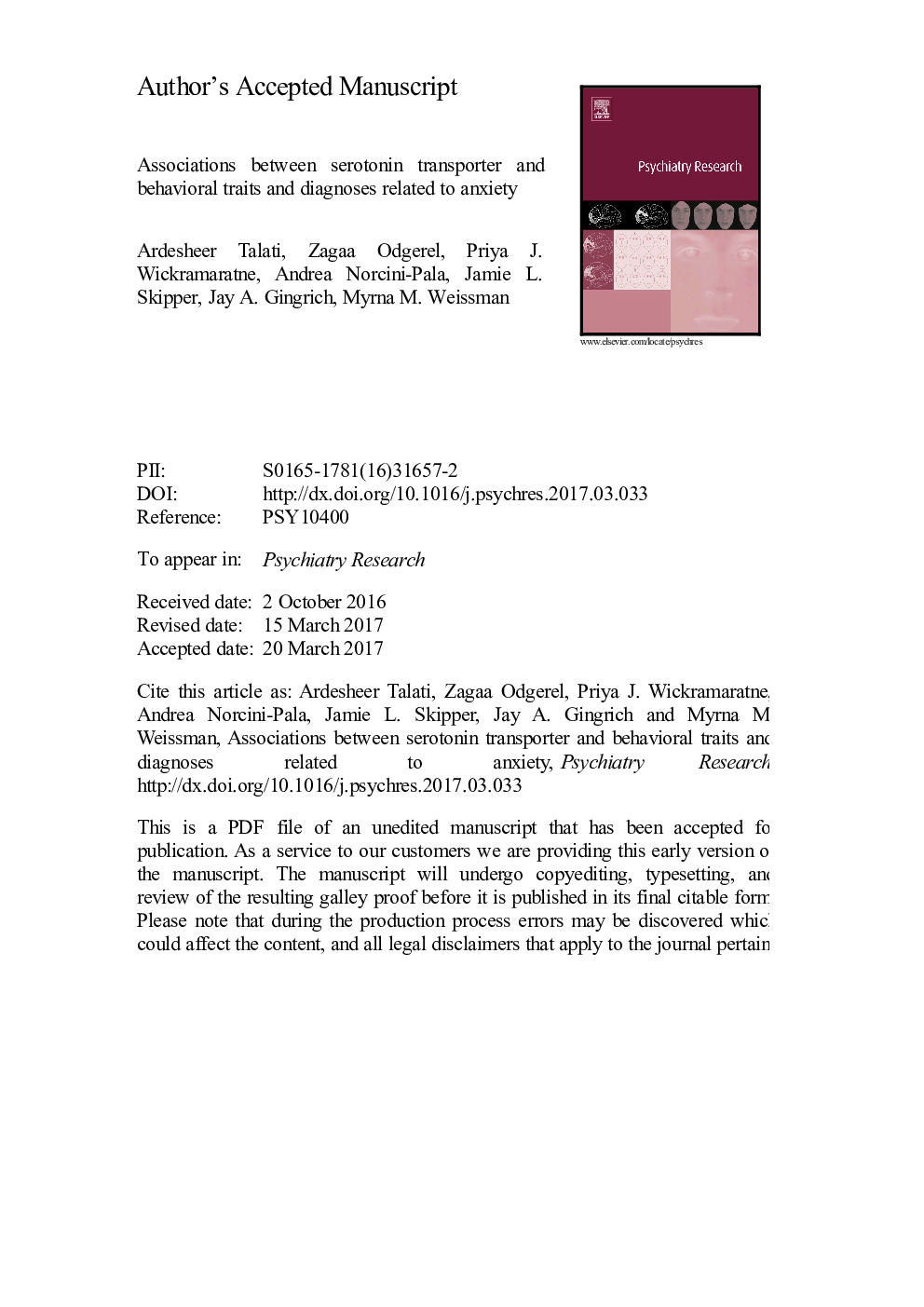| Article ID | Journal | Published Year | Pages | File Type |
|---|---|---|---|---|
| 4933296 | Psychiatry Research | 2017 | 29 Pages |
Abstract
The role of the serotonin transporter promoter-linked polymorphism (5-HTTLPR) in psychiatric disease remains unclear. Behavioral traits could serve as alternative outcomes that are stable, precede psychopathology, and capture more sub-clinical variation. We test associations between 5-HTTLPR and (1) behavioral traits and (2) clinical diagnoses of anxiety and depression. Second and third generation participants (N=203, 34.2±13.8 years, 54% female) at high- or low- familial risk for depression (where risk was defined by the presence of major depression in the 1st generation) were assessed longitudinally using the Schedule for Affective Disorders and Schizophrenia-lifetime interview, Barratt Impulsiveness Scale-11, Buss-Perry Aggression Questionnaire, and the NEO-Five Factor Inventory. High (but not low)-risk offspring with two risk (short, s) alleles had higher impulsivity (+13%), hostility (+31%) and neuroticism (+23%). SS was associated higher rates of panic (OR=7.05 [2.44, 20.38], p=0.0003) and phobic (OR=2.68[1.04, 6.93], p=0.04), but not other disorders. Impulsivity accounted for 16% of associations between 5-HTTLPR and panic, and 52% of association between 5-HTTLPR and phobias. We show that 5-HTTLPR predicts higher impulsivity, hostility, and neuroticism, and that impulsivity could serve as a useful independent outcome or intermediary phenotype in genetic studies of anxiety.
Related Topics
Life Sciences
Neuroscience
Biological Psychiatry
Authors
Ardesheer Talati, Zagaa Odgerel, Priya J. Wickramaratne, Andrea Norcini-Pala, Jamie L. Skipper, Jay A. Gingrich, Myrna M. Weissman,
